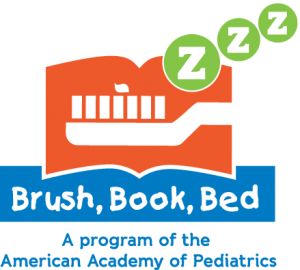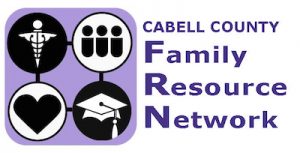FOR IMMEDIATE RELEASE: Friday, Feb. 1, 2019
CONTACT: Debra Harris-Bowyer, Cabell County Family Resource Network Coordinator
P: 304.697.0255 | E: dbowyer@cabellfrn.org
CONTACT: Kaylin R. Adkins-Staten, Hourglass Media
P: 304.900.2833 | E: kaylin@hourglassomnimedia.com
Brush, Book, Bed Resources Establish Healthy Routines for Children
HUNTINGTON, W.Va. — Thousands of children in West Virginia have tooth decay before they attend their first day in kindergarten. This is something parents and caregivers can prevent with good oral health habits.
That’s why the Cabell County Family Resource Network (Cabell County FRN) and its partners are promoting tips and resources this February during National Children’s Dental Health Month.
The Brush, Book, Bed, a program of the American Academy of Pediatrics (AAP), has a simple and clear message for parents and caregivers:
- Each night, help your children to brush their teeth.
- Read a favorite book (or two)!
- Get to bed at a regular time each night.
Having a predictable nighttime routine will help children understand and learn to expect what comes next. Additionally, routines may ease the stress that some families experience at nighttime. The campaign offers a thorough approach to successful, tested tips and resources here.
“Healthy dental habits include regularly brushing teeth, dental visits, and healthy eating practices,” said Gina Sharps, oral health coordinator at Marshall University Joan C. Edward School of Medicine. “Children with healthy teeth live longer more productive lives and have higher self-esteem. The oral health of your child is important to ensure their school success, health and happiness. Children with poor oral health perform poorly in school, have difficulty concentrating, and often struggle with getting a job when they get older.”
Two years ago, in February 2017, The Cabell County FRN launched its Resources for Healthy Teeth Toolkit, and since then, thousands of children’s smiles across the region have gotten brighter.
The information in the Toolkit is compiled to make it easy to access a variety of different materials to help parents and programs promote good oral health and help children have healthy teeth and smiles for life.
“Many times, parents and care givers aren’t sure where to go for resources,” said Debra Harris Bowyer, coordinator of Cabell County Family Resource Network. “In West Virginia, 55 percent of children have CHIP and Medicaid. The WVCHIP Benefit Plan covers a full range of dental services; however, many don’t use their CHIP and Medicaid dental coverage. During 2017, the percentage of eligible children receiving preventive dental services was only 0.2 percent for infants up to age 1, 11 percent for ages 1 to 2, and 50 percent for ages 3 to 5. Families can find out eligibility and more on the WVCHIP website, www.chip.wv.gov.
“The Cabell County FRN has compiled many different topics and website links to quality information like children’s activities, ideas and tools for teachers of preschool and school age children, how parents can find a dentist and many other items. By providing a guide to resource information and promoting it in the community, we hope to increase the knowledge of these resources and the utilization of dental services and help children be cavity free.”
Examples of included local, state, regional and national resources are the following:
- National children’s dental health campaign
- Tips for healthy teeth for parents and caregivers
- Finding a dentist close to you
- Lessons to use with students in the classroom and beyond
- Fun activities for children
- Local, state, regional and national resources
The print and digital resource guide, available on www.cabellfrn.org, provides the following:
- CHILDREN: Activities, videos, phone apps
- PARENTS AND CAREGIVERS: Tips for healthy teeth
- EARLY EDUCATION PROGRAMS: Pre-K and in-home family education
- SCHOOLS AND TEACHERS: Lessons and activities, K-12
- COMMUNITY ORGANIZATIONS AND FRNS: Available state resources
- DENTAL AND HEALTH NATIONAL RESOURCES: WVDA, ADA, AAPA, AAP
- COUNTY AND COMMUNITY HEALTH: Resources, oral health education
- DENTISTS: Find a dentist, dental home, insurance, CHIP
This project is done in collaboration with the DentaQuest Foundation and the Community and School Oral Health Team at Marshall University School of Medicine applauds the efforts of the Cabell County FRN as it works to empower families in our local communities. The Cabell County FRN recognizes that families cannot be healthy unless they have the proper knowledge and tools on how to care and maintain healthy teeth and mouths.
For more information and to download Brush, Book, Bed and Resources for Healthy Teeth Toolkit, visit www.cabellfrn.org.
The Cabell County Family Resource Network (FRN) is a partnership of individuals, families and agencies working together to promote the well-being of children and families in Cabell County. Since its incorporation in September 1993, the Cabell County FRN has brought together a broad-based representation of partners, including business representatives, consumers, and service providers from health, education, housing, and social services. These partners are critical to improving the well-being of our families and children. The Cabell County FRN envisions a coordinated, community-based social service system responsive to the needs of families and effective in enhancing the success of individuals and families to responsibly achieve their goals.
# # #
To access the Electronic Press Kit: http://bit.ly/kidsdentalhealth_EPK2019
For graphics and stock photos: http://bit.ly/kidsdentalhealthtoolkit_2019
BREAKOUT BOX:
Here are some kids’ dental health best practices, from Gina Sharps, oral health coordinator at Marshall University Joan C. Edward School of Medicine:
- Brush two minutes two times per day with fluoridated toothpaste. It’s recommended that you help your child brush until they’re around 8 — and that’s due to the development of his or her fine motor skills. At around 8 and older, you children can brush on their own — about the same time they can tie their own shoelaces and brush their own hair.
- Once your child’s teeth start to come into the mouth, brush using a children’s toothbrush and fluoride toothpaste.
- Drink tap water with fluoride and eat healthy foods. Try to avoid sugar in your child’s diet as much as you can because sugar is a leading cause of early tooth decay.
- Consider using dental sealants to prevent tooth decay. Dental sealants cover the chewing portion of the tooth and are placed as soon as the permanent six year and 12 year molars come into the mouth.
- It’s also best to start your child’s visits with a dentist at age one.
# # #



